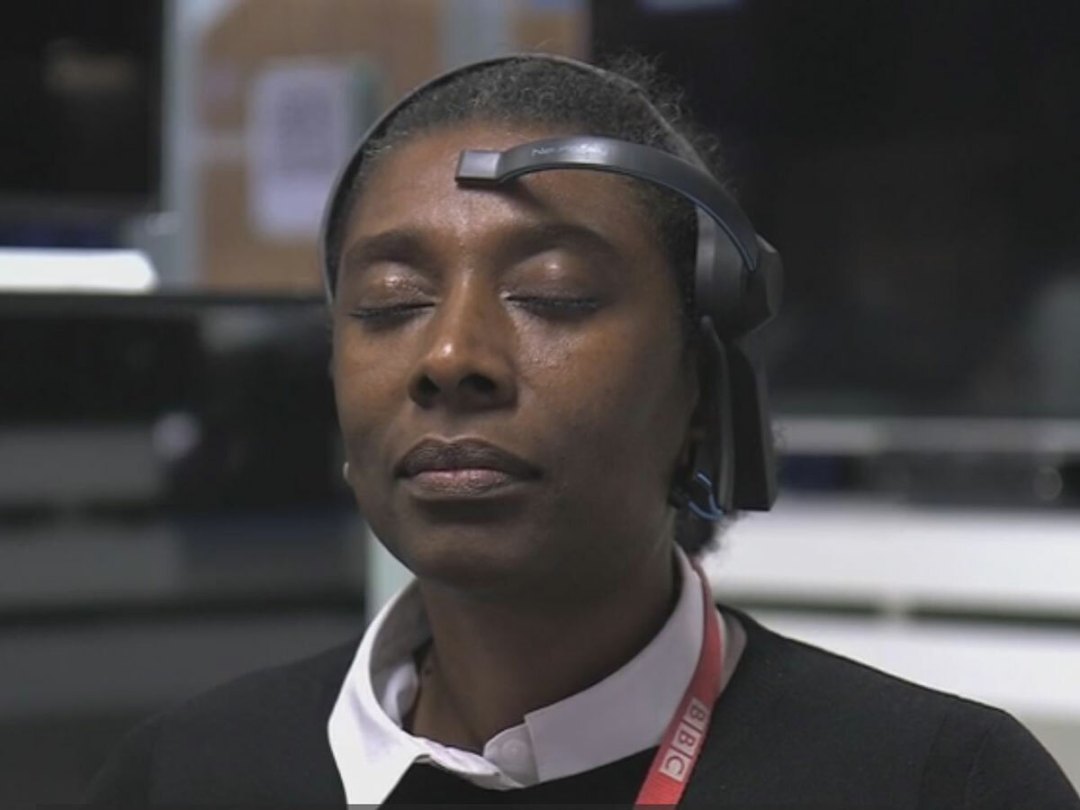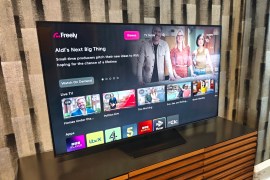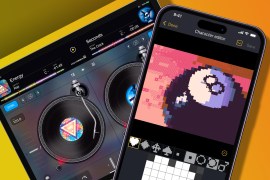BBC invents iPlayer app you can control with your mind
Auntie gets experimental with a brainwave-reading wearable

New input devices are all the rage these days. Now the BBC has joined other interface pioneers with a headset that reads brainwaves.
It sounds like science fiction, but devices that read basic changes in brain activity have been around for a while. What user experience studio This Place has achieved on behalf of the BBC is integrating that technology with BBC iPlayer.
The kit consists of a headset which sports two electroencephalography (EEG) sensors, one resting on the forehead and another next to the ear. Together these sensors are able to read the ‘volume’ of a person’s thoughts, described as ‘concentration’ or ‘meditation’ states. Using these states as input, the headset is able to provide simple binary feedback to the custom iPlayer interface.
The kit was tested on 10 employees internally and each was able to select the programme of their choice. Achieving this using binary commands in the standard iPlayer interface would be impossible, so the team has generated a UI which cycles through programmes, changing the active selection every ten seconds. When the desired programme is highlighted, the user then changes their degree of concentration appropriately to confirm their choice.
The kit is only an internal prototype and we’re unlikely to see anything of the sort on the shelves any time soon, but the new development shows promising ways for the BBC to enhance its accessibility services. For the many thousands of licence fee payers with severe disabilities, mind control could facilitate truly independent viewing – a great step forward.
The kit reminds us of the great work conducted by Special Effect, a company dedicated to creating gaming peripherals for disabled children. One of their best pieces of kit allows the player to control a racing game using nothing but their eyes.
In terms of general application, the rudimentary nature of mind control tech means that we’re unlikely to be ditching our remotes or voice control apps any time soon, but never say never.



